Accepted Scientific Name: Chasmatophyllum musculinum (Haw.) Dinter & Schwantes
Z. Sukkulentenk. iii. 18 (1927)

Mesembryanthemum musculinum (Chasmatophyllum musculinum) Photo by: Valentino Vallicelli
It is one of the hardiest mesembs,
highly praised for its longevity and tolerance of a wide range of soils and moisture.
Origin and Habitat: Native to the Krugerskraal area in the Karoo mountains of South Africa.
Synonyms:
Common Names include:
ENGLISH: Hardy Tiger's Jaws, Woody Yellow Mat Iceplant
Description: It is a succulent groundcover that forms a tight mat of evergreen foliage and a long-blooming display of bright yellow flowers.
Leaves: Small, light green, with white teeth on upper surface; small, finely warty and textured, that form low rosettes.
Flowers: Yellow, silky, daisy-like that open in the afternoon. If it is too cloudy, the flowers fail to open entirely.
Blooming season: It blooms for several months, beginning in mid-spring.
Bibliography: Major references and further lectures
1) Heidrun E. K. Hartmann (Hrsg.): “Illustrated Handbook of Succulent Plants: Aizoaceae F-Z.” Springer Verlag, Berlin/Heidelberg/New York 2001
2) Gideon Smith u.a. (Hrsg.) “Mesembs of the World: Illustrated Guide to a Remarkable Succulent Group.” Briza Publications, 1998
3) Gustav Schwantes “Zur Systematik der Mesembryanthemen.” In: Zeitschrift für Sukkulentenkunde. volume 2, page 175, 1926
4) Hermann Jacobsen “A handbook of succulent plants: descriptions, synonyms, and cultural details for succulents other than Cactaceae, Volume 1” Blandford Press, 1960
5) James Cullen, Sabina G. Knees, H. Suzanne Cubey “The European Garden Flora Flowering Plants: A Manual for the Identification of Plants Cultivated in Europe, Both Out-of-Doors and Under Glass” Cambridge University Press, 11/ago/2011
 Mesembryanthemum musculinum (Chasmatophyllum musculinum) Photo by: K.k. Agrawal
Mesembryanthemum musculinum (Chasmatophyllum musculinum) Photo by: K.k. Agrawal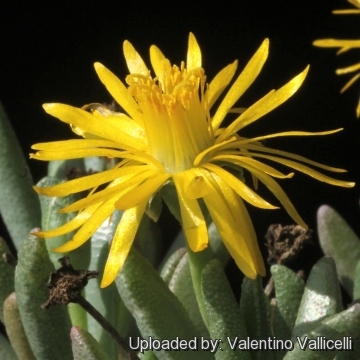 Mesembryanthemum musculinum (Chasmatophyllum musculinum) Photo by: Valentino Vallicelli
Mesembryanthemum musculinum (Chasmatophyllum musculinum) Photo by: Valentino Vallicelli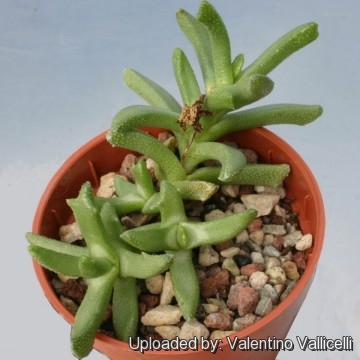 Mesembryanthemum musculinum (Chasmatophyllum musculinum) Photo by: Valentino Vallicelli
Mesembryanthemum musculinum (Chasmatophyllum musculinum) Photo by: Valentino Vallicelli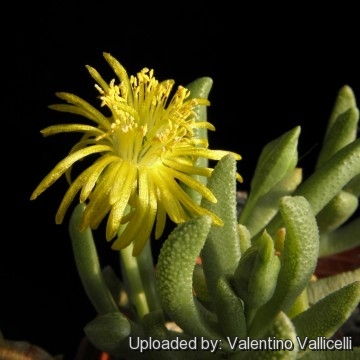 Mesembryanthemum musculinum (Chasmatophyllum musculinum) Photo by: Valentino Vallicelli
Mesembryanthemum musculinum (Chasmatophyllum musculinum) Photo by: Valentino Vallicelli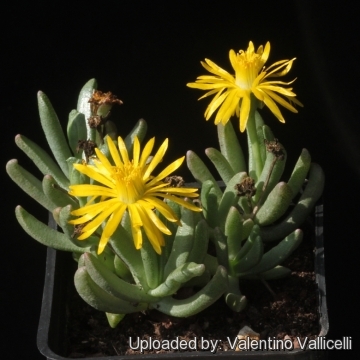 Mesembryanthemum musculinum (Chasmatophyllum musculinum) Photo by: Valentino Vallicelli
Mesembryanthemum musculinum (Chasmatophyllum musculinum) Photo by: Valentino Vallicelli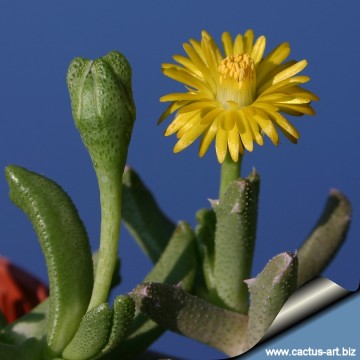 Mesembryanthemum musculinum (Chasmatophyllum musculinum) Photo by: Cactus Art
Mesembryanthemum musculinum (Chasmatophyllum musculinum) Photo by: Cactus Art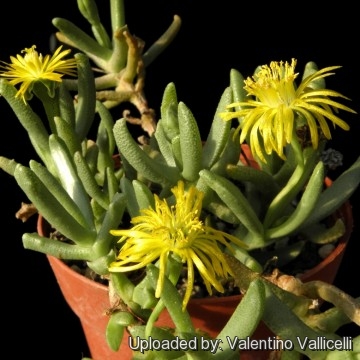 Mesembryanthemum musculinum (Chasmatophyllum musculinum) Photo by: Valentino Vallicelli
Mesembryanthemum musculinum (Chasmatophyllum musculinum) Photo by: Valentino VallicelliSend a photo of this plant.The gallery now contains thousands of pictures, however it is possible to do even more. We are, of course, seeking photos of species not yet shown in the gallery but not only that, we are also looking for better pictures than those already present.
Read More... Cultivation and Propagation: It is one of the hardiest mesembs and can survive outdoors in European winters without special protection (Frost hardy to -12° C or less). It is a slow growing, but easy species, highly praised for its longevity and tolerance of a wide range of soils and moisture. It can be cultivated in the ground (it needs a lean, well-drained soil) or in a container, the potting mix should preferably be very porous, to increase drainage. It needs light shade, but If slowly acclimated, it can take a good deal of sun. Water regularly in summer (but allow to dry out before you water again); keep quite dry in winter. Should be repotted only every 2-3 years
.
Uses: It is perfect for planting as a small-scale xeric groundcover along the edges of walks or flagstone patios where it won’t be stepped on. It is also very useful in rock gardens and cactus beds. It is also perfect for a bright windowsill.
Propagation: Cuttings or (rarely) seeds. It is easily propagated by the removal of offshoots in spring. To propagate by cuttings, remove a shoot and let it lie for about one week, giving the wound time to heal. Cuttings should first be allowed to dry and heal by placing them on a cool place for at least one week. The basal part should preferably be treated with a fungicide. Plant the cutting in an erect position in sandy soil. Rooting is rapid, and the plantlets can be planted out in small containers when they are large enough to handle.

















